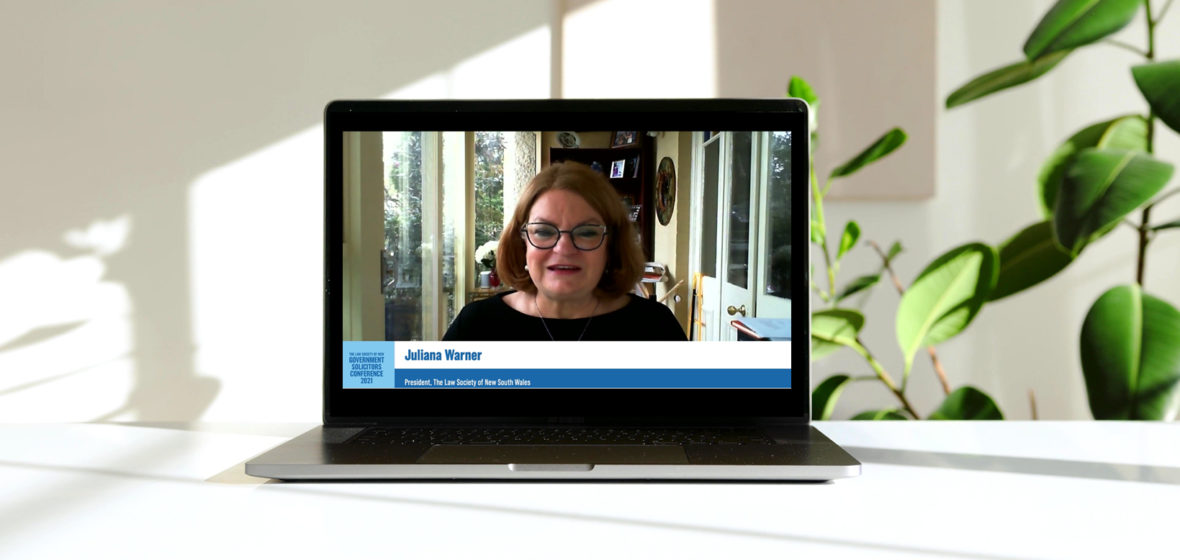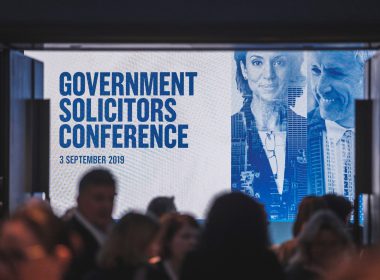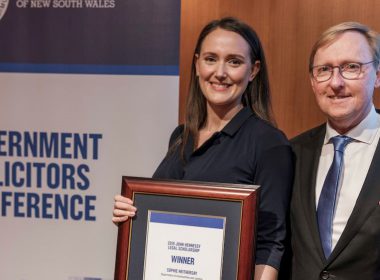Have virtual courtrooms made justice more or less accessible? Is social media a government lawyer’s friend or foe? And can artificial intelligence streamline bureaucracy or will it become another tangle of red tape?
These questions were just some of the talking points during the popular 2021 Government Solicitors Conference on 7 September.
A rich and diverse programme of topics saw registrations for the virtual event exceed the previous two years. The event also included a virtual award ceremony for the winners of the Government Solicitors Awards [full details of the winners on overleaf].
The opening session featured three judges discussing the challenges and triumphs of last year’s sudden pivot to virtual courtrooms, reintroduced following the Delta outbreak in NSW in June.
The panelists praised how the profession has adapted to the pressures of the pandemic and virtual court buy Federal Court Judge Sandra Markovic noted “I look forward to the day we can bring the profession back to the court room.”
District Court Judge Dina Yehia discussed the benefits of an in-person courtroom, and said the virtual format had to work to ensure access to justice for vulnerable defendants, as well as for family members of victims who may wish to attend court to deliver impact statements.
“Virtual proceedings run the risk of dehumanising those who appear in criminal trials,” Judge Yehia said.
One topical session was how government agencies can harness the reach and power of social media whilst navigating any potential risks or pitfalls.
NSW Government Deputy Secretary and General Counsel from the Department of Premier and Cabinet [DPC] Kate Boyd, the chair of the session, told how “social media presents incredible opportunities but also legal risks for government agencies.”
“All employers must ensure that their employees are aware of the exercising discretion when making comments on social media. Build an inclusive and speak-up culture so that employees feel comfortable engaging in policy debate internally. If people feel they can raise concerns, they are less likely to vent on social media in a way that damages their reputation and the integrity of public service,” Boyd told the event.
“These conduct obligations must be front-of-mind for public servants who maintain a social media presence. It is not always clear where reasonable participation in public discourse ends, and potential misconduct begins.”
A full day of virtual sessions ended with a discussion on balancing human rights with artificial intelligence [AI] in government decision-making, featuring panellists the recent Human Rights Commissioner Ed Santow, who recently led a Human Rights and AI project for the Australian Human Rights Commission, Executive Director of Civil Justice Rowan McRae, Disability Discrimination Commissioner Ben Gauntlett and Melbourne Law School professor Jeannie Paterson.
The group started by discussing the lessons that can be learned from the Robodebt scheme. Gauntlett noted that 4.4 million Australians have disability, but it is so often unseen: meaning government agencies have an obligation to ensure the rights of and accessibility for people with disability is paramount in their policy development.



